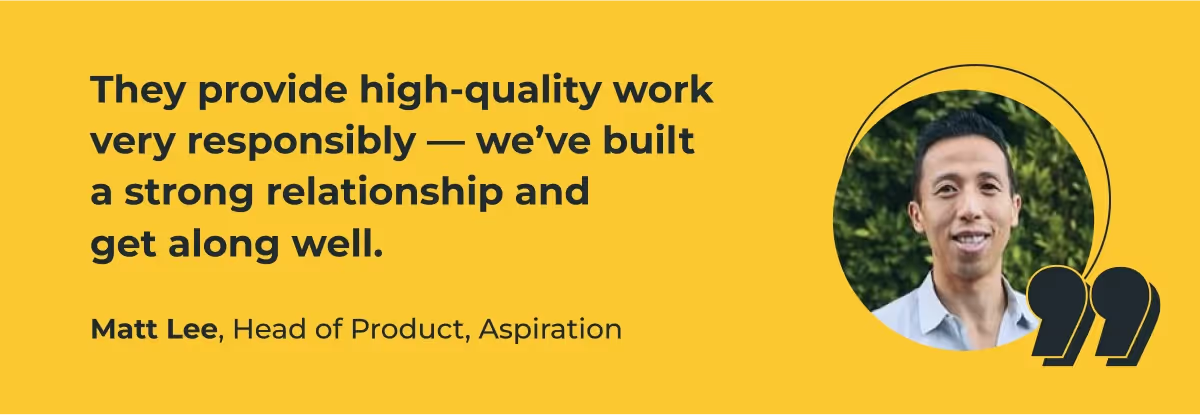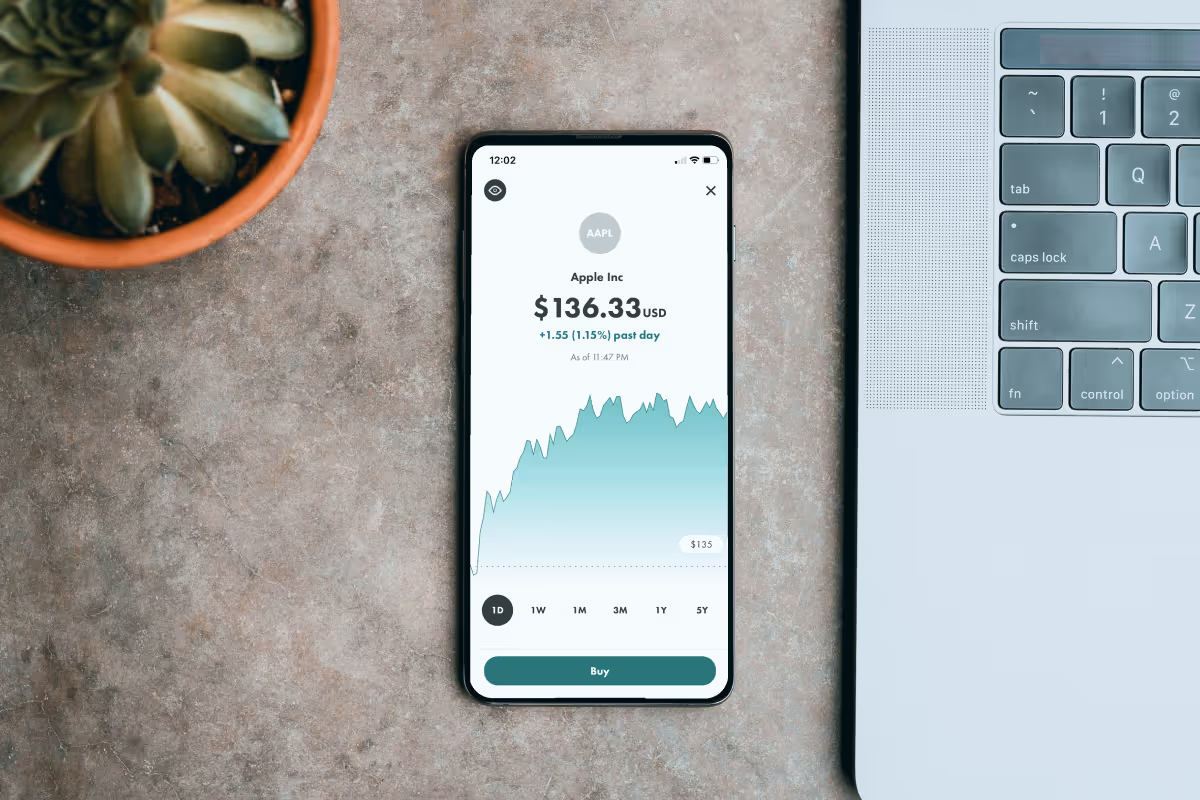If you’ve been observing how fintech has evolved, you know there’s no better time to build your own fintech product. Alternative payment solutions like PayPal, Wise, and Apple Pay have been gaining popularity in recent years. According to Statista, 4.8 trillion users will transact digitally by 2028 with an average amount of $3,400 per user.
One of the first things to do when building fintech solutions is to hire fintech developers. But doing so is different from engaging a regular software developer. Besides possessing technical adeptness, fintech developers require substantial experience in mitigating cybersecurity risks and complying with stringent financial regulations.
Often, SMBs and startups searching for fintech programmers face several questions.
- How to hire fintech developers?
- Where to find them?
- How to start and choose the best?
- What separates the best fintech developers from the rest?
I’m Stan Burenko, the Head of Business Development at Uptech. I’ve worked with clients to assemble fintech developers that meet their requirements. I’m aware of the risks, fintech challenges, and ways to build your fintech dev team. And I’ll share what I know in this guide.

How to Hire Fintech Developers: 7 Main Steps
Don’t rush to onboard a fintech developer without going through due diligence. That’s because every fintech startup is unique, whether in terms of business goals, product, budget, and expectations. These steps will help you avoid certain hurdles when hiring a fintech developer.
- Decide on the collaboration model
- Determine the developer’s selection criteria
- Create compelling job descriptions
- Search for the candidates
- Shortlist the candidate
- Conduct interviews
- Hire the fintech developers

Step 1: Decide on the collaboration model
Think about whether you want to work with an in-house, freelance, or external team. Better don't rush your decision because each has its pros and cons.
Hire in-house fintech developers
An in-house team gives you more control. But be prepared for the salary, perks, and other recurring expenses you need to bear. Plus, you’ll also need to lead and manage the fintech project. If you’re not technically experienced, coordinating work amongst the developers can be challenging.
Hire freelance fintech developers
Here, you engage fintech developers on a freelance basis. You pay them either hourly or by projects rather than fixed prices. While you can be more flexible with your budget, ensuring freelancers consistently deliver quality outcomes is challenging. Also, similarly to an in-house team, you still need to oversee the entire project.
Outsource to external fintech development team
The third option is to outsource the entire fintech project to an outside team. Outsourcing is a popular collaboration model. In fact, global brands like Google, Slack, and Skype outsource some of their developments to external teams. These days, you can outsource easily by looking for outsourcing companies on Clutch, Goodfirms, or among your networks.
The benefit? You get to spend more time growing your business while the outsourced team delivers the quality solutions you need. Besides, outsourcing lets you access a broader talent pool at more affordable rates.
Step 2: Determine the developer’s selection criteria
Before you search for fintech programmers, it’s essential to be clear about the type of candidates that fit your needs. This means determining each of the following in advance.
Programming languages
Building a fintech app requires proficiency in programming languages like JavaScript and Python. JavaScript lets developers create mobile and web platforms, and Python is commonly used for web apps and allows to leverage machine learning. Besides that, you will need developers who can code in React Native, Flutter, Kotlin, or Swift if you’re creating fintech mobile apps.
Financial technology tools
The fintech programmers you hire should be familiar with fintech expertise like machine learning, data analysis, and blockchain. Also, be aware that integrating 3rd party tools, such as Paypal, and Stripe is often needed for a fintech app. To make it complicated, a fintech app has a complex architecture. So, it’s better to look for teams with the respective skill sets. Otherwise, they will have difficulties enabling decentralized transactions, smart contracts, and other features in fintech apps.
Security and compliance expertise
Knowing how to mitigate security risks and complying with financial regulations is a plus for potential candidates. For example, fintech developers should be aware of the main fintech security regulations, like know-your-customer (KYC) requirements and acts like PCI-DSS to regulate credit card transactions and GDPR for data protection.
Years of experience
Ideally, hire fintech app developers with several years of experience. The more seasoned they are, the faster your product will be ready, as they can avoid known challenges.
Industry relevance
It's better to work with developers who have built something similar. For example, if you want to build a P2P payment app, you will have fewer hurdles working with a fintech developer who’s built a similar product rather than one involved in a cryptocurrency project.
We've build 7 fintech products and offer full-cycle financial software development services. Check what we offer!
Cultural fit
You can further accelerate your fintech product if you work with developers who are familiar with your culture and work ethic. For example, US, Canadian, Australian, and European startups tend to hire developers from countries that share a similar culture, such as Ukraine.
Step 3: Create compelling job descriptions
Once you’ve determined the type of fintech developers you want to hire, put them into writing. List down the responsibilities, budget, and other hiring details. Remember to make your hiring ads catchy because many organizations are competing for similar talents.
Step 4: Search for the candidates
You can find potential fintech developers from different sources. For example, you can reach out to them on LinkedIn, Clutch, and popular freelancing websites. We’ll explore this in-depth in the following section.

Step 5: Shortlist the candidate
Based on your requirements, make a list of applicants and potential candidates who interest you. Inform them that you’re keen on engaging them for a fintech development project. Discuss their availability, reimbursement, and other expectations.
Step 6: Conduct interviews
Interview the shortlisted candidates either virtually or in-person. Learn more about their communication style, experience, and skillsets by asking open questions. You can also find out if the candidates are a good fit for your company.
Step 7: Hire the fintech developers
Finally, make the offer to the most suitable candidates. But you might need more than one developer to build your fintech product. That’s because creating a fintech app is challenging, and relying on a single developer is risky. So, hire the number of fintech designers and developers you need.
Where to Find the Best Fintech Developers?
You need the best fintech developers to develop your fintech app successfully. The question is, where do you find them? We share several sources that might land you the developers you need.

Hiring an in-house team
If you want to hire an in-house team, you’ll need to search for platforms frequented by job seekers or through popular recruiting methods.
LinkedIn is great for headhunting experienced fintech developers for your startup. You can search and filter developers by their location and see the company they’re attached to. In most cases, the platform lets you contact the candidate directly. However, it’s difficult to ensure the accuracy of the developer’s profile. Plus, you’ll need to sign up for LinkedIn Premium to send messages to candidates you’re not connected with.
Referrals
Ask your professional circle for trustworthy fintech developers. Some founders or product managers you know might have worked with some and will be happy to introduce them. However, be mindful that this method might not always get you the right candidate. For example:
- There’s a risk of bias in their recommendations
- Limited options to choose from
- Candidates might not reproduce the same quality
Indeed
Indeed is one of the largest job sites in the US, and it has a global presence. You can post ads for fintech programmers and vet the applications to find suitable candidates. It’s great if you want to hire developers for your internal team, but not the best option for connecting with an outsourcing partner.
Outsourcing to fintech development companies
Outsourcing is the more popular option amongst global startups. Instead of being committed to an in-house team, startups, and SMBs can collaborate based on terms they’re comfortable with. If you choose this method, these are channels to search for potential outsourcing partner companies.
Clutch
Clutch is a B2B marketplace that connects clients with business and IT service providers. On Clutch, you can browse and filter app development companies based on their industry, rate, budget, and more. More importantly. Clutch lets you read reviews that other clients left so you can make an informed decision. For example, our clients shared what they thought about their experience with us on Clutch.

Goodfirms
Goodfirms is similar to Clutch, an independent business directory featuring app development companies. You can search for suitable developers, explore their portfolios, and read their reviews. You can visit our profile on Goodfirms and check out some of our app designs.
Search engine
Another way to find fintech programmers is to search for them on Google. Just type ‘best fintech development companies’, and you’ll get results of listings featuring selected companies. You can also search for developers with very niche skill sets. For example, if you need a developer experienced with Skrill, formerly Moneybooks, just type ‘hire moneybooks developers’ on the search bar.
While this is a quick way to compile a list of candidates, remember to do your due diligence by checking out their client reviews on Clutch or Goodfirms.
Referrals
Similar to hiring in-house fintech designers and programmers, you can ask your professional network for outsourced developers they’ve worked with. Surprisingly, the traditional recruitment method is still effective in today’s digital age. In fact, most of our clients found us through recommendations from our existing clients.
Outsourcing to fintech freelance developers
Another way to outsource is to engage freelance developers. Upwork, Fiverr, and Guru are some of the top freelancing portals you can use to search for freelance fintech developers. They list the developers’ profiles, reviews, and rates. However, you have limited engagement with the candidates until you contract them.
How to Choose the Best Fintech Developers?
It’s tough to assemble the best fintech development team, particularly when there’s a large pool of candidates. We share some tips that help you pick the best ones.

Step 1. Evaluate both hard and soft skills
Just because a developer is technically skilled and knows how to ingrate ChatGPT into your fintech software doesn’t mean they are a good fit for your team. Building a fintech product requires long-term collaboration, and developers need soft skills to work cohesively with you and your team. That’s why we stressed the importance of conducting interviews. This way, you can observe whether they’re respectful, confident, and concise when conveying their thoughts.
Step 2. Look for commitment
A distracted developer, no matter how capable they are, is detrimental to your startup. Avoid fintech developers who can’t commit a reasonable part of your time to your project. For example, we wouldn’t recommend freelancers because most are tied up with several other projects. Rather, it's best to partner with outsourced developers who can devote their time and focus on yours.
Step 3. Consider product mindset
When building a fintech product, developers must be able to understand the user’s needs and reflect them in the solution. That’s what we call having a product mindset. Unfortunately, not all developers can bridge the gap between technology adoption and solving users' needs. Uptech, on the other hand, prioritized our client and their users in over 200+ projects we worked on.
Step 4. Assess industry experience
The best fintech developers are those equipped with both industry and technical experience. They can turn complex requirements into functional solutions and navigate the finance industry's challenges. But rarely does a single developer command such a wealth of experience. Instead, it takes a team of multidisciplinary developers like Uptech to successfully build and launch a fintech product.
How to Collaborate with an Outsourced Fintech Developer?
Most outsourced fintech development companies are flexible when collaborating with their clients. At Uptech, we help you choose a collaboration model you’re comfortable with.
Dedicated team
Let’s say you’re an early-stage startup, and you’ve yet to define your requirements clearly. The model that fits is the dedicated team. With this model, we’ll assign a team that works exclusively for your startup. The team usually consists of a project manager, UI/UX designers, app developers, backend developers, and QA engineers. They operate like your employees, except we’ll pay their salary. This means they can familiarize themselves with your startup’s culture, work closely with your internal team, and respond to changes promptly.
Pros: Higher focus, stronger team alignment and greater control.
Cons: More expensive.
Suits best for: long-term projects and projects with vague requirements.
Project-based
Project-based collaboration is useful for well-defined short-term tasks. Some startups already have an internal team and a market-ready product. At times, they want to add new features but are at capacity. IT project outsourcing model allows them to outsource part of the project to an external team and pay for the work delivered. For example, we work with a neobanking client that wants to add gamification features to an existing app. They work with us to improve their app without onboarding new hires.
Pros: Cost-efficient, flexible collaboration.
Cons: Different teams might handle the same project, creating continuity risks.
Suits best for: Well-defined, short-term projects.
Staff Augmentation
Imagine trying to innovate your app with an internal team and finding that they lack a specific skill set. If recruiting and retaining a new developer is costly, consider staff augmentation. The model lets you temporarily engage a developer from an outsourcing agency. For example, you can augment your team with our generative AI specialist to integrate an AI-powered virtual assistant into your fintech app. The great thing about this model is that you can scale up or down quickly according to your needs.
Pros: Access to expertise, cost-friendly.
Cons: More effort is needed for internal and external team members to work cohesively.
Suits best for: Projects that require specialized skills.
How Much Does it Cost to Hire a Fintech Developer?
The fee for developing a fintech product mainly depends on the app's complexity. A simple P2P payment app is faster to build compared to an investment app integrated with major exchanges worldwide. Eventually, the app’s cost comes down to the app developers cost.
Depending on their experience and the location they’re based in, fintech developers charge differently.
Remember, don’t hire a developer just because they offer the cheapest rate. Take factors like language barrier. cultural, quality and expertise fit into consideration, too. If the developer cannot speak or read your language fluently, you will find it challenging to communicate your thoughts. Likewise, developers who don’t possess the expertise required will deliver subpar solutions.

Conclusion
Hiring the right fintech developers on board is instrumental to building and launching successful products. From deciding the type of developer to onboarding them, every step plays a pivotal role in identifying the most suitable candidate. In this article, we’ve shared where you can turn when you need reliable programmers to work on a fintech project.
At Uptech, we’re experienced in developing fintech solutions. Our developers are skilled in tech stacks and UI/UX practices required to deliver engaging and purposeful fintech apps. Whether through staff augmentation, project-based, or a dedicated team, we can tailor a collaboration model that suits your startup.
Contact us and we'll consult you on fintech app development and make an estimate for your project.
FAQ
What is a fintech developer?
Fintech developers, like typical developers, create apps that run on computers and mobile devices. However, fintech developers specialize in creating apps that perform monetary transactions and other finance-related matters. For example, they build apps that let you transfer money, manage funds, or invest in stocks.
What are the skillsets a fintech developer should have?
Fintech developers should be experienced in blockchain, big data, and machine learning. They must understand cloud computing architecture and cybersecurity challenges involved in building, deploying, and maintaining applications in public cloud. For example, knowing how to protect sensitive data from unauthorized access by encrypting data collected and stored by the apps on the cloud.
Like their peers, fintech developers should also be equipped with programming languages and software frameworks for creating fintech apps. For example, most fintech programmers are familiar with Javascript, Python, and React.
How do I find the right fintech software development company?
Follow the steps below to find the right fintech development company.
- Evaluate the candidate’s skills, experience, rate, culture, and other factors.
- Check out their portfolio and client reviews to ensure the candidates have a solid track record.
- Then, assess the developer’s communication and other soft skills by interviewing them.















































































.avif)




















